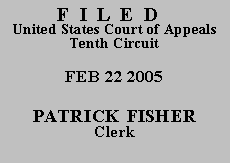

| ELWOOD LESLIE NIELSEN and LYNN NIELSEN, | No. 04-4195
(D.C. No. 2:03-CV-1093-PGC) (Dist. Utah) |
Elwood and Lynn Nielsen ("Appellants" or "Debtors") are lifetime farmers who voluntarily filed for personal bankruptcy under Chapter 11 on February 19, 1986. Pursuant to 28 U.S.C. § 157(a), their case was referred to the bankruptcy court and designated as Case No. 86A-20700. On December 11, 2003, the Nielsens, proceeding pro se, moved for the withdrawal of the reference to the bankruptcy court. They asked the district court to either (1) dismiss the case in its entirety or (2) conduct a jury trial on twenty-seven causes of action, all apparently arising from alleged errors on the parts of their counsel, the trustee, and the bankruptcy court during the more than eighteen years of bankruptcy proceedings in this case.
A district court must "on timely motion of a party" withdraw a proceeding otherwise referred to the bankruptcy court if resolution of the case "requires consideration of both title 11 and other laws of the United States regulating organizations or activities affecting interstate commerce." 28 U.S.C. § 157(d). We do not need to reach the question of whether this case raises the kinds of issues that would otherwise require withdrawal to the district court, because we agree that a motion for withdrawal filed eighteen years after bankruptcy proceedings are instituted--especially when those bankruptcy proceedings are on the "brink of closure"--is not timely.
Here, Appellants' allegations arise from events going back as far as 1986. They assert, for example, that the bankruptcy case itself was "improperly filed" and that their Statement of Affairs and Schedules, prepared by counsel, was "replete with error, false hoods [sic] and mistakes, one after another." Even if these were issues properly before a district court, the Nielsens' claims were not brought to the district court's attention in a timely manner. Therefore, we AFFIRM the district court's denial of the motion for withdrawal.(2)
Finally, to the extent Appellants argue the merits of their underlying claims on this appeal, we note for clarity's sake that the only issue before us is whether the district court properly denied Appellants' motion to withdraw. Because we conclude that district court was correct in denying that motion, we do not reach the merits of any of Appellants' additional claims.(3)
ENTERED FOR THE COURT
David M. Ebel
Circuit Judge
*.After examining Appellant's brief and the appellate record, this panel has determined unanimously that oral argument would not materially assist the determination of this appeal. See Fed. R. App. P. 34(a)(2) and 10th Cir. R. 34.1(G). The case is therefore ordered submitted without oral argument. This Order and Judgment is not binding precedent, except under the doctrines of law of the case, res judicata, and collateral estoppel. The court generally disfavors the citation of orders and judgments; nevertheless, an order and judgment may be cited under the terms and conditions of 10th Cir. R. 36.3.
1.The Nielsens originally erroneously filed their notice of appeal with the Bankruptcy Appellate Panel ("BAP"). The BAP correctly noted that the notice of appeal of the district court order should have been filed in the district court. Pursuant to applicable authority, the BAP properly dismissed the appeal without prejudice and then transmitted the notice to the district court, where it was treated as filed on the date it was mistakenly filed with the BAP. See Fed. R. App. P. 4(d); 10th Cir. BAP L.R. 8018-11(b). Therefore, we treat this misdirected notice of appeal as timely and proceed accordingly. White v. Ward, 145 F.3d 1139, 1140 (10th Cir. 1998).
2. The district court also noted that, if it had discretion to order a withdrawal on its own authority pursuant to 28 U.S.C. § 157(d), it declined to exercise that discretion here. We find this decision more than reasonable under the circumstances of this case.
3.We have considered Appellants' Exparte Motion and Request for Submission to the Court for Decision. In light of our ruling that the Appellants did not make a timely motion to withdraw the bankruptcy referral, we deny this motion as moot.